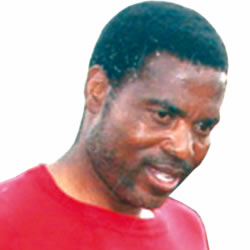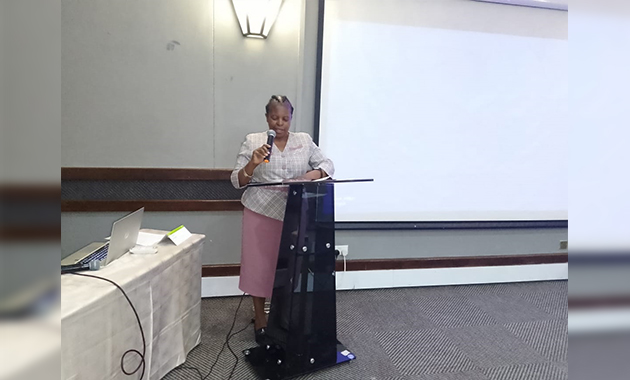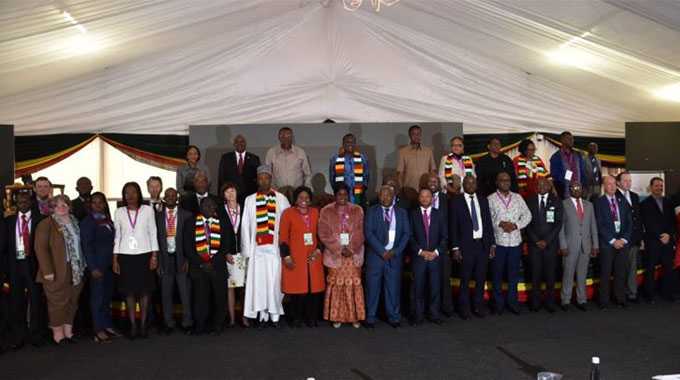Blow for African culture in UK
last 50 years or so.
It is the location of the Africa Centre, a building which reflects the history of the continent in perfect symmetry.
A generation of Africans nearing the end of their earth time will remember it for the debates which took place beneath its roof, for the sense of belonging it evoked among hundreds of Africans from disparate backgrounds, for the cultural expression that once blossomed there in all manner of arts and for being the doorway through which Britain and the rest of Europe could get to know Africa and her Africans.
South Africa’s Nobel laureate Archbishop Desmond Tutu spoke for the first generation of Africa Centre patrons when he told the BBC that “you don’t think a building can clutch at your heart the way that one does.
“I do remember that when you were feeling a little low and homesick and everything seemed so foreign – you’d have this place (the Africa Centre), it was so heart-warming,” he said.
Of course, the man is a bishop and he is in the business of talking about warming hearts but, in this instance, he was taking a trip down memory lane following the decision of the Africa Centre’s trustees to sell it, via a 125-year lease, to property developers.
So, the Africa Centre, as we have known it, will be no more.
It is true that deep down we are all creatures of sentiment and like the African elephant we are prone to revisit geographical settings that sit heavily in our memories like the weight of rivers.
From the earliest days, it was possible to meander down the Centre’s spiral staircase, pass a large mural by the Mozambican artist Malangatana and enter a tiny bar alive with liberation intrigue and the easy flow of the familiar.
Protesters outside the Africa Centre in London. There is a strong public campaign to keep the Africa Centre open.
Those who were there speak of drinking with wanted terrorists and spies, of watching Zimbabwean writer Dambudzo Marechera trash the bar after winning a major prize for fiction and of seeing legendary musicians perform as if they were in their own villages or townships.
The great milestones of our short history, as well as the political upheavals our continent has faced since independence, have all been debated in this building.
As a journalist you could follow Uganda’s Lord’s Resistance Army rebel movement via a London-based official speaking at the Africa Centre, hear first-hand accounts of the Sudanese troubles or watch Ethiopians and Eritreans in fierce denial about the true nature of their differences, which triggered a border war that claimed tens of thousands of lives.
African visitors from Paris, Vienna and Moscow would you tell you there was no such place as the Africa Centre and for this reason 38 King Street became the international pulse of Africa in the heart of what was once the capital of Empire.
Back in April, a list of prominent people, including Boris Johnson, the Mayor of London, Mo Ibrahim, the billionaire Sudanese philanthropist, Youssour Ndour, the Senegalese musician and Archbishop Tutu said in a public letter:
“A vibrant Africa Centre in the heart of London can help to ensure that the city retains its status as the place where the continent engages with the rest of the world.
“We are appealing to the trustees to have second thoughts and to hold an open meeting to discuss a viable future for the Africa Centre.”
Some months later, that open meeting had not yet happened and the trustees, a little shy of their public for years, declared in a statement that they had “collectively” decided to lease out 38 King Street following “exhaustive reflection and almost a decade of searching for a solution to the charity’s long-term financing needs”.
I found myself in Covent Garden for yet another “Save The Africa Centre” protest, expecting to see a gathering of complaining old men.
Instead, the vast majority were young men and women from the born-free generation, demanding that there should be “No Secret Sale” and strangely in tune with the history of a building they were never really part of.
Author Mark Olden declared that he would gladly have paid a membership fee to keep the Africa Centre afloat.
A young woman said her English mother and Nigerian father met there and if it was not for 38 King Street, she would never have existed.
But all this is history that you cannot google and, despite the attempts to save it, the trustees remain unswayed.
They seem to have raised the flag of surrender a long time ago, and the Africa Centre was doomed to be sold because of their sheer lack of imagination.
The Africa bar, the African restaurant, the Friday night cultural events all ceased abruptly in 2006. Whatever effort had been under way to keep to 38 King Street and its magnificent history was lost to a large African public that has never been fully updated on the reasons for these closures.
In the year Africa held her first World Cup, its doors were shut and in the year African Olympians will flood London, those doors may well be sold.
It is difficult to know why it has taken the Africa Centre nearly a decade to seek long-term financing to secure it for future generations.
London Some supporters say they would be prepared to pay a membership fee.
After all, Africa is not short of friends or billionaires – ask Mo Ibrahim, who runs an Achievement in African Leadership award worth US$5 million (£3 million).
But can the trustees of the Africa Centre be trusted?
A spokesman for the Africa Centre said: “If you travel to the Caribbean, if you travel to Lagos, you go to Nairobi – you see the young people and what Africans – the way they want to project themselves – times have changed and I think this building has not really been doing it for us recently.
“It’s no longer, as I see it, fit for purpose,” he added.
In such words lies the confusion at the centre of this minor storm in London.
An important African landmark has been allowed to go to ruin because of no sense of responsibility to generations to come.
Instead, the trustees chase their tails in search of what’s current in Lagos, Nairobi, and the Caribbean – all of which could have been showcased under the very roof they no longer see as fit for purpose.
It is hard, this vision thing, not everyone has it. – BBC.








Comments